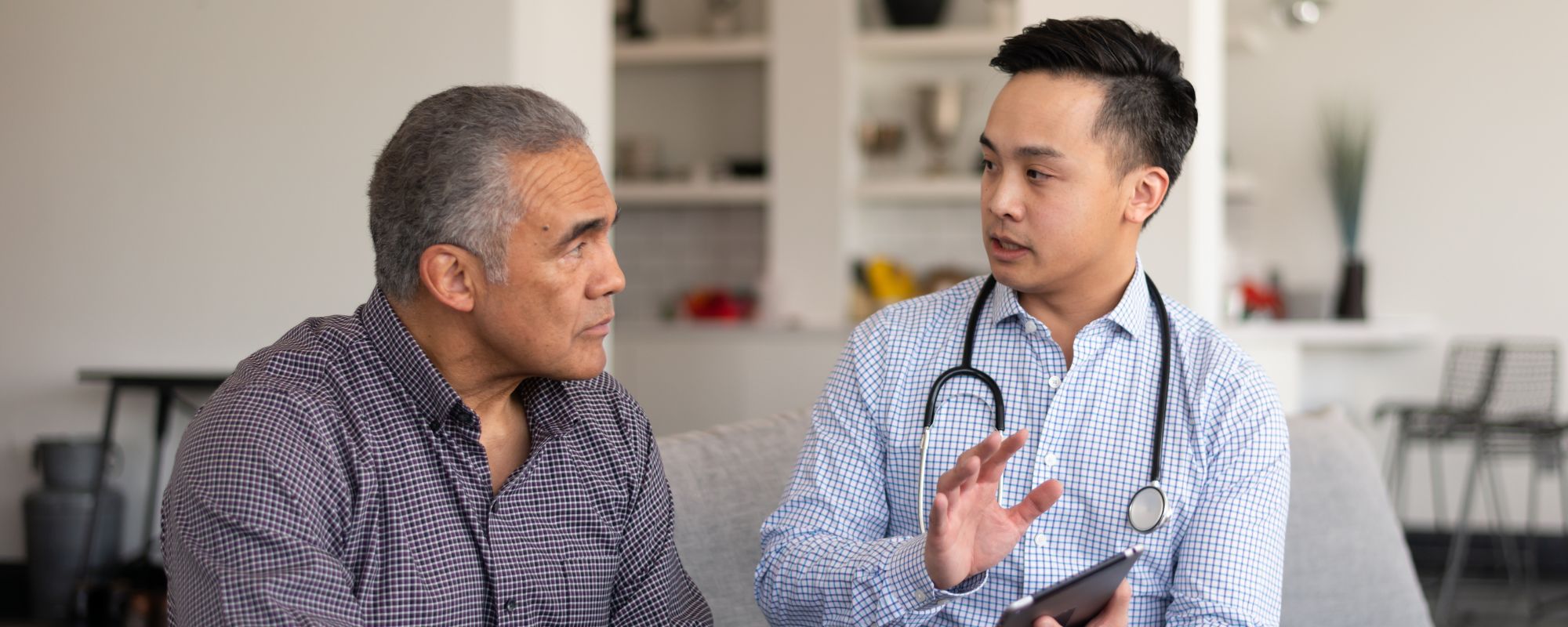In addiction treatment, guests are focused on the impact of their addiction and how to make positive changes that will set them up for a successful recovery. It is common for bad habits to surface through out the addiction treatment process, which is why it is so important for guests to be sharing openly and honestly through out their treatment experience. Recognizing, understanding, and addressing your bad habits is vital to the recovery process.
Identifying Bad Habits
Gaining insight about the bad behaviors you are perpetuating or starting in drug rehab can make all the difference in the successfulness of your overall recovery. At Royal Life Centers, we provide intensive therapies and therapeutic methods to help give each guest guidance and insight that will greatly improve their treatment experience. It is common to catch yourself indulging in a bad habit in addiction treatment, but it’s more significant to learn from your habits and begin replacing them with healthy habits.
Here are 8 bad habits you could be making in addiction treatment:
-
- Picking up replacement habits for their substance abuse/addiction.
Because addicts and alcoholics have an addictive personality, we have a higher likelihood of replacing our drug or alcohol addiction with another addiction. We have a tendency to replace our addiction with other bad habits, or addictions, like: eating, exercising, shopping, technology, nail-biting, you name it.
-
- Entering a romantic relationship.
Addiction treatment can produce some strong emotions, and many people will look for a distraction from their feelings. Sometimes, choosing a romantic relationship as a way to distract from emotions, and giving themselves a sense of companionship through the recovery process because it feels less overwhelming when someone is going through it with you. This is why we strongly recommend not entering a romantic relationship in early recovery, because it will cause you to distract from your feelings and regress in your recovery. Royal Life Centers provides guidance and support through each step of the recovery process, to remove any feelings of doing this alone.
-
- Co-dependent relationships
Codependency is “an emotional and behavioral condition that affects an individual’s ability to have a healthy, mutually satisfying relationship. It is also known as ‘relationship addiction’…” (“Co-Dependency”). Traditionally, codependency comes from a focus on control and maintaining relationships with individuals who have chemical dependency problems. Usually, codependent relationships are created because the codependent does not feel comfortable being themselves or being by themselves, for validation, in hopes of “saving” people who need rescue, and to feel needed by others. Some characteristics of codependent people include:
• an exaggerated sense of responsibility for the actions of others
• a tendency to confuse love with pity, and a tendency to love people they can pity and rescue
• a tendency to do more than their share, all of the time
• becoming hurt when people don’t recognize their efforts
• an unhealthy dependence on relationships. Co-dependents will do anything to hold onto a relationship to avoid the feeling of abandonment
• an extreme need for approval
• a sense of guilt when asserting themselves
• lack of trust in self and others
• fear of being abandoned/being alone
• issues with intimacy and boundaries
• difficulty making decisions
(“Co-Dependency”).
Co-dependent relationships can become a bad habit, or acting out on an existing bad habit. Codependency is usually the result of not wanting to be alone, and the relationship provides a sense of validation and false sense of intimacy. Codependent relationships, whether they are friendships or romantic relationships, can lead straight back to an active addiction.
-
- Believing that one drug is your problem, and that you can still drink or use “less harmful” drugs.
Just because you stopped using your drug of choice, and feel like you never want to use that particular drug again, doesn’t mean that it’s okay for you to use other substances. Many times, people in addiction treatment will hold onto this belief that _________ was their problem, so they can still drink. Or ________ drug was their issue, so there’s no harm in smoking marijuana. This train of thought is regressive to your recovery process, and all you are doing is chasing that addiction to escaping reality. Despite being a drug addict and having no history of issues with alcohol or other substances does not mean you can safely use those other substances. Usually, other substances we believe are not a problem for us, will lead us right back to our drug of choice. This common idea is detrimental to your recovery and your sobriety, and allowing this thought to ruminate is a major bad habit you could be making in addiction treatment.
-
- Perpetuating addiction-oriented behaviors.
Allowing your behaviors from active addiction to resurface in addiction treatment, without working on them, is a huge bad habit that hinders your recovery. Addiction-oriented behaviors are essentially any behaviors that are pleasure-seeking or A lot of behaviors are addiction-oriented, like manipulating, lying, stealing, criminal activity, constantly blaming others, etc. Allowing your addiction-oriented behaviors continue will keep you far from recovery, being willing to recognize and address these behaviors is the first step.
-
- Staying closed off or not participating in therapy.
Many addicts and alcoholics have a tendency to hide or ignore their feelings, and choose to remain closed off to others as some form of protection. In addiction treatment, one of the biggest bad habits you could be making is not talking about how you feel, what you think, etc. By being unwilling to share, and use therapy to work through what you’re going through, then you are unwilling to get better. Addiction treatment is a time to truly participate in therapy to understand, gain insight, and better yourself.
-
- Surrounding yourself with toxic people.
This is a huge issue in addiction treatment. Addicts and alcoholics tend to attract and keep the company of others who are toxic to their recovery. This tendency stems from a history of toxic relationships, a desire to not be held accountable, and almost serves as a human representation of any reservations they may have about getting sober. Basically, anyone who is serious about their recovery and sobriety should seek out only healthy and supportive relationships. Those who are less concerned with their recovery will continue to keep bad company, which will further hinder any growth they could have.
-
- Oversleeping.
Many times, one of the long term withdrawal symptoms from chemical dependency is feelings of depression. This occurs because of the disturbance resulting from substance abuse or addiction on the rewards system of the brain. In active addiction, your brain became reliant on a substance to produce and release the “feel good” chemical dopamine. Once a substance is removed from routine, guests may be left feeling depressed because their brain now has a deficient of dopamine, and the natural reward system is distorted. In addiction treatment, we see guests subconsciously try to restore their levels of dopamine by cravings for foods high in sugar, fat, and sodium. Indulging in these types of foods provides a small release of dopamine, which is why the cravings are strong. Allowing feelings of depression to manifest in addiction treatment is easy, as you will tend to oversleep, become lethargic, uninterested, sad, etc. Acting on feelings of depression because of a dopamine deficiency will only perpetuate and reinforce them. This is why oversleeping can become common to recovering alcoholics and addicts, however, it is a bad habit that will in no way help the situation. Guests need to fight these feelings of depression as their brain chemistry rebalances from the effects of drugs or alcohol.
Our Treatment
Royal Life Centers at Puget Sound uses intensive therapies to focus on and support holistic healing— healing in the mind, body, and spirit. Our treatment programs are individualized to meet the needs and goals of each guest, including an approach to address any past, present, and future bad habits or behaviors. Our intensive therapies and therapeutic methods include: individual therapy sessions, group therapy, behavioral therapies, support groups, activity therapy, and art therapy. Upon arrival to our addiction treatment centers, guests will be assessed and evaluated for any co-occuring disorders, so that the best course of treatment and support can be provided. Guests at Royal Life Centers at Puget Sound play an active role in their recovery, as they collaborate with their primary therapist and case manager to design a treatment plan specifically tailored to meet his or her needs and personal goals.
Our treatment options in Royal Life Centers at Puget Sound include medical detox and our residential inpatient program. Royal Life Centers at Puget Sound offers an inpatient level of care for our treatment options. Royal Life Centers also has aftercare treatment programs, including: a partial hospitalization program (PHP), an intensive outpatient program (IOP), an outpatient program (OP), sober living and graduate housing. We focus on providing outstanding treatment and services for stabilization and healing, focusing on substance abuse and mental health. Our addiction treatment addresses alcohol use disorder, substance use disorders, and substance abuse; we provide addiction recovery, no matter what your “drug of choice” is. Our drug rehab centers feature highly-trained staff members, medical professionals, and state-of-the-art facilities. We introduce guests to 12 step programs of recovery, like Alcoholics Anonymous and Narcotics Anonymous, and highly recommend that our guests get involved in the recovery community.
References:
“Co-Dependency.” Mental Health America, National Mental Health Association, 8 Dec. 2016, www.mentalhealthamerica.net/co-dependency.
If you or someone you know is struggling with an addiction, please reach out to us at (877)-RECOVERY or (888) 308-1985. Our team of addiction specialists are available to take your call 24 hours a day, 7 days a week. Because We Care.












